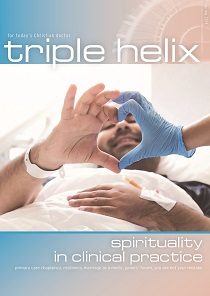The 18th century philosopher Jeremy Bentham wrote of animals: 'The question is not "Can they reason?", not "Can they talk?", but "Can they suffer?"' Professors Glover and Fisk, in their 1999 paper (1) say that Bentham caused such a change in attitude towards animals that in the UK, even frogs and fish are required by Act of Parliament to be anaesthetised during invasive procedures.
Within the living memory of some clinicians, medical students were taught that unborn babies did not feel pain and did not need such consideration.
It was not until 1997 that the first official investigation by the RCOG recommended fetal analgesia for diagnostic or therapeutic procedures on the fetus in utero at or after 24 weeks - notably omitting abortions. After the Science and Technology Committee's paper on abortion in 2007, (2) the Department of Health commissioned a second review by the RCOG which was published in 2010. (3)
This RCOG report remains in place as the official position on fetal awareness, despite drawing both national (4) and international (5) criticism (including from CMF (6)) for flying in the face of scientific literature.
However, it now seems the Department of Health has finally done a U-turn, despite maintaining their denial of the existence of fetal pain as recently as January 2019. (7) Following an announcement that fetal surgery to address spina bifida in utero will be made routinely available on the NHS, (8) the Government was asked about fetal pain relief in such cases. In response, a written parliamentary answer on 14 February this year, states that: 'Pain relief for the unborn baby will be delivered intra-operatively. This is administered before the fetal surgery, after the uterus is opened…The surgery takes place between 20 and 26 weeks of gestation.' (9)
Will this guidance be extended to other invasive procedures? What will be the lower limit for the use of fetal analgesia? Will the current NICE Consultation on Terminations consider fetal analgesia for abortions? (10) Will DFID change its guidance on late term abortions that the British government funds overseas? (11) And will any of this influence the Dáil in drafting Ireland's new abortion legislation? (12)
To achieve the best patient care and to restore trust, surely the way forward now is for a comprehensive, fully transparent review around fetal awareness by a multidisciplinary team, including expertise in paediatrics, fetal surgery, neurology and anaesthesia. They should use the scientific evidence to inform a compassionate clinical approach and recommend a starting point for fetal analgesia that errs on the side of caution.
Review by James Evans, CMF guest blogger































